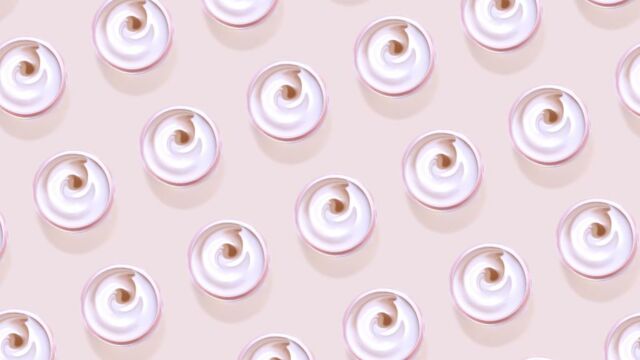We’ve all lost hours of our lives scrolling through TikTok’s ‘For You’ page, looking at cool new skincare trends, products and hacks. But, while some TikTok tips may seem promising and easily achievable, many are best left alone.
Discover our latest podcast
Here are five TikTok skincare trends that you should scroll on past as well as their safer and more effective alternatives.
1. Putting potatoes on your spots
We often see food used in DIY face masks but not like this. One new skincare trend has seen TikTok users tape raw potatoes to their faces in an effort to subdue their blemishes.
Now, this trend isn’t exactly baseless and here’s why:
Potatoes contain an enzyme called catecholase which has the potential to get rid of dark spots and brighten the skin. Additionally, spuds also sport cytokines that regulate immunity, inflammation and may possibly play a role in reducing acne.
However, the effects of raw potatoes on acne haven’t been studied so there’s no definitive evidence that this trend will actually work. If you’re looking to get rid of a nasty pimple you’re best off opting for a spot treatment containing salicylic acid or benzoyl peroxide.
2. Baking soda masks
Next up on TikTok’s trend that would make your dermatologist cry: baking soda masks. People have been flooding the popular app with videos of exfoliating face masks made from a mix of baking soda and water. But, while this home remedy may be good for getting stains out of the carpet, it can be rather damaging to the skin.
Baking soda and water has a pH balance of around 8, but your skin’s natural pH is closer to 4.5-6, so applying bicarb soda to your face can actually result in stripping of the skin’s moisture barrier. This can cause the skin to react with redness, inflammation, itchiness, acne and overcompensation of sebum.
If you’re looking for a great way to exfoliate, try chemical exfoliants such as lactic or glycolic acid.
3. Aspirin masks
It makes sense to think that you could treat inflammatory acne with anti-inflammatory medication. However, there is a difference between taking medication and crushing it up and putting it on your face.
The theory here is that because Aspirin contains anti-inflammatory ingredients and acetylsalicylic acid (a synthetic derivative of salicylic acid), it could be used as a topical acne treatment. However, acetylsalicylic acid works differently from the real thing and is actually a little too harsh for the skin, making it potentially irritating and sensitising.
If you’re struggling to treat inflammatory or hormonal acne, it’s best to make an appointment with your GP or dermatologist to discuss your options.
4. DIY micro-needling
Micro-needling, otherwise known as dermarolling, is a process of rolling tiny holes in the face to trigger the skin’s healing response, creating a boost of collagen and elastin. When done professionally, micro-needling could help improve scars and texture on the skin. However, when done at home with techniques learned off the internet, people could end up with infections and irritation. Not to mention you might end up with some nasty wounds on your face.
It’s best to fork out the extra cash and leave dermarolling to the professionals.
5. Vaseline to remove blackheads
The last and probably most bizarre TikTok skincare trendon the list is using vaseline to remove blackheads. Videos show TikTokkers smearing their noses with Vaseline and then steaming it off to remove blackheads. But honestly, smearing petroleum jelly on your face and not washing it off properly is much more likely to clog your pores than cleanse them.
To clear blackheads, try incorporating exfoliating acids into your skincare routine and make sure to double cleanse at the end of the day to really get all the SPF and makeup off your face.















